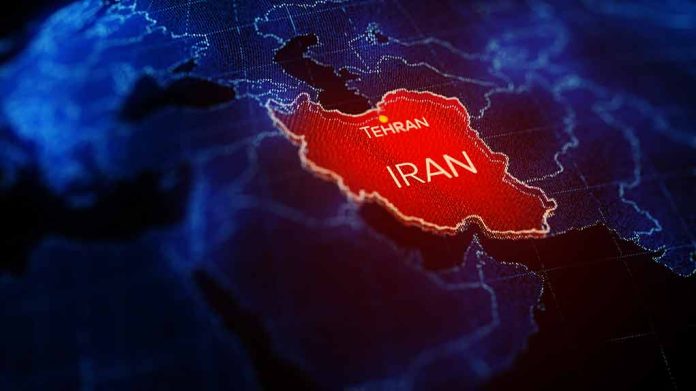
U.S. officials raise alarm over Iran’s potential to directly influence American voters as election day approaches, with cyber threats and voter manipulation tactics at the forefront of concerns.
At a Glance
- Iranian hackers have reportedly accessed some Americans’ voting records
- U.S. intelligence warns of potential direct contact with voters to incite division
- Foreign adversaries, including Russia and China, also pose threats to election integrity
- Covert influence campaigns expected to question election validity post-polls
- A.I. and deepfakes emerge as growing concerns in election interference
Iran’s Cyber Threat to U.S. Elections Intensifies
As the United States approaches another pivotal election, intelligence officials are sounding the alarm on a growing threat from Iran. Recent reports indicate that Iranian hackers have gained access to some Americans’ voting records, mirroring tactics employed during the 2020 electoral cycle. This development has raised serious concerns about the potential for direct voter manipulation and the spread of disinformation.
The threat of Iranian interference extends beyond mere data breaches. U.S. officials anticipate that Iran may attempt to directly influence American voters, potentially inciting societal divisions or even violence. This strategy aligns with past incidents where Iran was accused of sending threatening messages to citizens in other countries, including the U.S., Israel, and Sweden.
U.S. officials expect that Iran is likely to contact individual Americans directly to try to influence how they vote, sources say.
Last week, intelligence officials said that Iran and Russia were continuing propaganda operations to influence voters. https://t.co/gK0td71HmR
— NBC News (@NBCNews) October 30, 2024
Foreign Adversaries Target U.S. Democracy
Iran is not alone in its efforts to undermine U.S. democratic processes. Intelligence reports indicate that Russia and China are also conducting propaganda operations aimed at swaying American voters. Each nation appears to have different preferences for the election outcome, with Russia reportedly favoring former President Trump and Iran leaning towards Vice President Kamala Harris.
“You don’t have to read the tea leaves to know this is a possible tactic. They have a clear history of using it,” said John Hultquist lead analyst at Google’s Threat Intelligence Group.
The Foreign Malign Influence Center, established in 2022, is at the forefront of efforts to protect U.S. elections from foreign interference. Their main focus is on combating “malign foreign influence,” which includes hacks, leaks, bots, trolls, and targeted attack ads. However, the evolving nature of these threats, particularly the use of artificial intelligence and deepfakes, presents new challenges.
Post-Election Concerns and Ongoing Vigilance
Intelligence officials warn that the threat of foreign interference will not subside after Election Day. Covert influence campaigns are expected to focus on questioning the validity of election results, potentially fueling domestic unrest and undermining public trust in the democratic process.
Social media companies play a crucial role in identifying and mitigating foreign influence campaigns. However, they often rely on government confirmation to take action against suspected foreign actors. This collaboration between tech companies and intelligence agencies highlights the complex nature of combating cyber threats to election integrity.
As the election approaches, it is clear that the United States faces a multi-faceted challenge from foreign adversaries seeking to influence its democratic processes. Vigilance, cooperation between government agencies and tech companies, and public awareness will be crucial in safeguarding the integrity of the upcoming election and preserving the foundations of American democracy.
Sources:
- https://www.nbcnews.com/tech/security/iran-foreign-influence-election-us-campaign-email-news-rcna177269
- https://apnews.com/article/russia-china-iran-disinformation-election-ef9b5155349d496e00513e7b3bc3fc07
- https://www.nytimes.com/2024/10/07/us/politics/russia-china-iran-false-election-claims.html
- https://www.bbc.com/news/articles/cx2yv9k3mpmo
- https://www.newyorker.com/magazine/2024/10/28/the-us-spies-who-sound-the-alarm-about-election-interference










